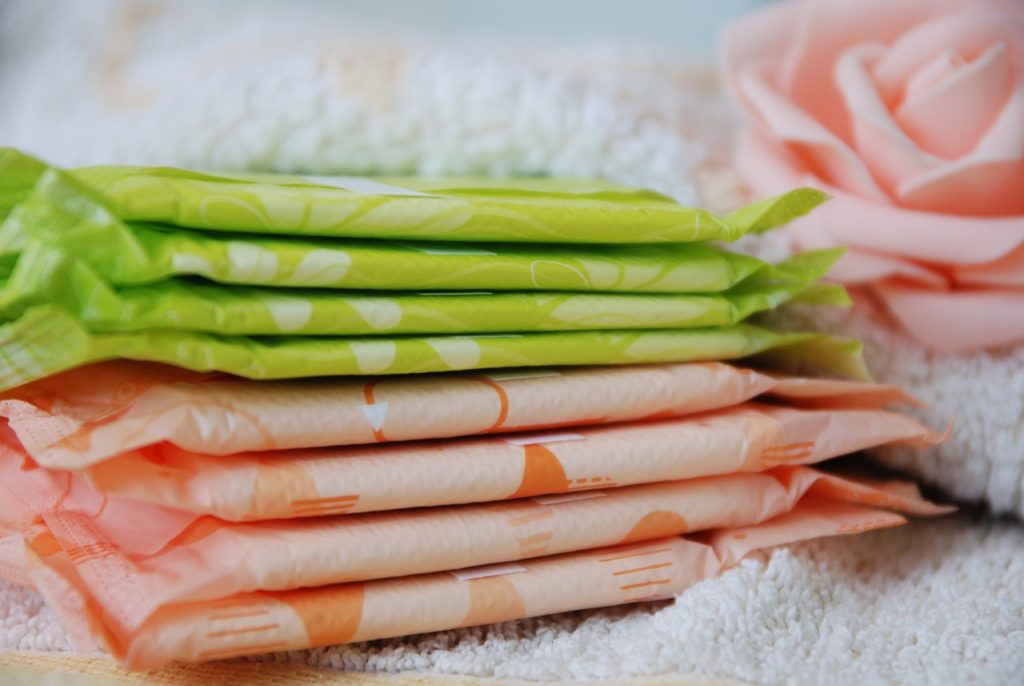Today’s discussion around menstrual health is evolving from mere convenience to encompass broader themes of sustainability and inclusivity. As we become more aware of our environmental footprint and societal inequalities, the importance of sustainable period care that is accessible to all people, regardless of gender, becomes increasingly pertinent. This shift promotes health and hygiene and supports environmental and social justice goals. Understanding why sustainable period care is essential and ensuring it is inclusive fosters a healthier planet and a more equitable society.
The Environmental Impact of Conventional Period Products
Traditional period products like tampons and sanitary pads are staples in many menstruation practices, but they come with a significant environmental cost. These products are often made with non-biodegradable materials that linger in landfills for centuries. A single individual can generate over 130 pounds of non-biodegradable waste through menstrual products alone during their lifetime.
The production process for these items is equally concerning, involving high levels of water consumption, chemical treatments, and plastic usage. The result is a substantial carbon footprint from just one essential health product. As the global population and awareness grow, the sustainability of these traditional methods is questioned. The push towards eco-friendly alternatives is a trend and a necessary shift to reduce our ecological impact.
Inclusivity in Menstrual Health Care
Inclusivity in menstrual health care is about more than just addressing women; it’s about acknowledging that menstruation is a reality for many people across a spectrum of gender identities, including non-binary and trans individuals. Historically, the dialogue and marketing around period care have centered exclusively on cisgender women, creating an environment where others may feel isolated and unsupported. This lack of inclusion can lead to significant barriers to accessing appropriate products and healthcare resources, exacerbating feelings of stigma and misunderstanding.
The importance of education about gender diversity in discussions of menstrual health cannot be overstated. By fostering a more inclusive conversation, we can help ensure that everyone who menstruates feels seen, supported, and equipped with products that meet their needs and values. This shift benefits individuals and enriches the broader community with a deeper understanding and respect for diversity.
Health Implications of Non-Sustainable Menstrual Products
Beyond their environmental impact, conventional menstrual products often contain synthetic fibers and chemicals that can pose health risks. Dioxins, synthetic fibers, and petrochemical additives found in some tampons and pads can cause skin irritation and allergic reactions and may have longer-term health impacts. These concerns highlight the need for safe products for our bodies and the environment.
The movement towards organic and natural products has gained momentum as consumers become more health-conscious. Organic cotton, bamboo, and other natural fibers offer safer alternatives that are gentle on the skin and biodegradable. By choosing sustainable period care products, individuals can reduce their exposure to harmful chemicals and contribute to a healthier ecosystem, aligning personal health with environmental stewardship.
The Innovation and Accessibility of Sustainable Period Products
Recent years have witnessed significant innovation in sustainable period care, offering various options that cater to different preferences and needs. One standout product category is period underwear, which combines comfort, reliability, and sustainability. These garments are designed to absorb menstrual flow without needing disposable products, and they can be washed and reused for several years. Their design and functionality represent a major leap forward in period care, providing an effective solution drastically reducing waste.
Period underwear is one example of innovators rethinking period products to be more eco-friendly and inclusive. Menstrual cups and reusable pads are also gaining popularity for their minimal environmental impact and long-term cost-effectiveness. These products lessen the burden on landfills and provide a more economical option over time, which is especially important for those with limited access to disposable products. The challenge now lies in making these innovative products widely accessible and affordable to all, regardless of socioeconomic status.
Community and Global Initiatives Promoting Sustainable Period Care
Various organizations and community groups worldwide are leading initiatives to promote sustainable menstruation practices. These range from educational programs that provide information on eco-friendly products to large-scale distribution projects aimed at making sustainable period products accessible to underserved communities. These initiatives often focus on dismantling the stigma surrounding menstruation while promoting gender inclusivity and environmental awareness.
Governments and NGOs play crucial roles in these efforts by funding and supporting programs that can reach a broad audience. Campaigns that encourage the use of sustainable period products can significantly impact public health and environmental policies. Individuals and communities contribute to a global movement toward a more sustainable and equitable world by supporting such initiatives.
The Role of Consumers in Driving Change
Consumer choices have immense power to influence market trends and corporate decisions. By choosing sustainable period products, consumers signal to companies the demand for more environmentally friendly and health-conscious options. This consumer pressure can lead to broader changes in how products are manufactured, packaged, and marketed, fostering a more sustainable economy.
Consumers can advocate for change by supporting businesses that prioritize sustainability and inclusivity in their products and practices. Sharing information, participating in community outreach, and educating others about the benefits of sustainable period products also amplify individual choices’ impact, potentially inspiring widespread change.
The importance of sustainable period care extends far beyond personal health and environmental conservation—a crucial aspect of promoting social justice and gender equality. By embracing and advocating for eco-friendly and inclusive menstrual products, individuals improve their health, reduce their environmental footprint, and support broader societal shifts toward inclusivity and sustainability.
As the discussion around menstrual health continues to evolve, it must do so with an emphasis on accessibility, education, and sustainability. Through informed choices and collective action, we can ensure that sustainable period care is not just a privilege but a norm that benefits all of society. This approach not only respects our planet but also honors the diverse experiences of all people who menstruate, paving the way for a healthier, more inclusive future.

